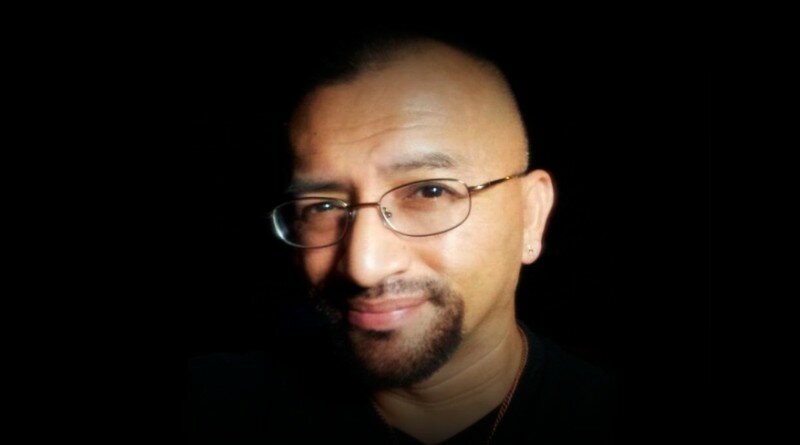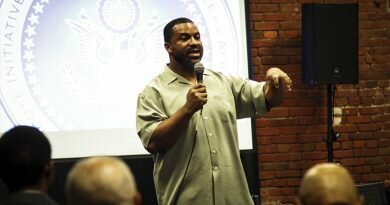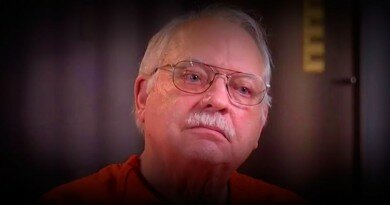blackmattersus.com
Our readers had the chance to meet you in July. Then you were just finishing work on your book. Let’s start from the basics. Why do you support the Black community in its fight for racial and social justice?
Charles Edward York
Well, of all the minorities and cultures in the United States, the African American community has been the one that has suffered the most injustice and for a much longer period of time. And why I say that, with all due respect to the Native Americans who have had some compensation for the social and political injustice they have suffered, the African American community has not had these kinds of compensation. In history, they were first brought over as slaves and were treated as property, but since the emancipation proclamation, the only thing that was guaranteed was the right to vote. As we all know, that right to vote was diluted and in some places just completely ignored. The African American community continues to suffer injustice because of the systematic discrimination, wealth inequality and the racial backlash going all the way to revolutionary wartimes. As a human rights activist as well as a minority member myself, I can’t just simply ignore what’s happening to a very substantial and significant member of our society especially when they’ve contributed so much. For them to suffer and continue to suffer for as long as they have, it’s of social significance to me as an American to speak out against it and to use that as a way of reminding my fellow Americans of something that we keep forgetting. If you love your country, you have to have that love extended to all the members of the country. To me, the African American community is one of the primary groups that define who we are as Americans because our greatest contradiction involved their enslavement and we have been dealing with what I would say is the lack of complete compensation for them.
blackmattersus.com
The birth of a book is no less a wonder than the birth of a man. Can you tell us some of the key points and main problems you encountered when you wrote these poems? How did you cope with them?
Charles Edward York
Well, the idea started from a speech that was given by the actor, Jesse Williams, at the BET Awards and from that point I started thinking about social injustice. And the biggest protagonist in my poetry regarding social injustice is the African American. It’s a subject that I think has been watered down to a point of intellectual indifference, there are too many people trying to talk around the issue. A lot of people don’t even want to talk about it at all. So for me as a poet, a lot of what I think about is issues that relate to the conscience and most of my poetry reflect that. For me, the African American has constantly had to carry this burden of being the conscience of our nation. When freedom seems to be somewhat lacking, oddly enough, it always involves the African American community. It’s one thing to see a bunch of people come from very humble means and rise to be superstars. But it’s another one when you see an entire generation being completely left behind. And when that generation is spending more time in incarceration than they are exercising their freedom, you’ve got a problem. As a writer and poet, you can’t help but see that. It’s one thing to sit back and write poetry on the reflection of beautiful things but beauty isn’t the only subject area that a poet has to concern themselves with. The opposite of poverty is not wealth, it is justice. And justice includes freedom, equality, access, opportunity, encouragement, and it should also be free of any forms of prejudice. When you don’t have those six elements then you don’t really have an equal society. What I’ve tried to do with every single book that I’ve written is to try to show that it’s not just the suffering, it’s asking the more important question, “Why is this suffering happening?” If my poetry can help people to ask those questions, then there is the possibility for hope. Because once you start asking the right questions, you will find the answer.
blackmattersus.com
When I saw the word ‘burden’ on the book, I associated it with someone who’s been carrying a yoke and looks very tired. But the Black man on the cover of the book looks far from that. He looks strong and ready to act. Who is the face of the book?
Charles Edward York
I got that picture from Yahoo Images and I’m not really sure whose face that is, but I used it simply because that was the only image that I found that sort of communicated what I wanted that book to express. The reason why I chose that particular picture is that it was a very modern picture of a young African American male who showed a very honest and multidimensional set of moods and attributes. Here is the face of a young man who is staring at you as if he is attempting to look into you as you look into him. And I needed something that was multidimensional, that’s why I chose that picture.
blackmattersus.com
As I read parts of the book, I observed that your poems have a very revolutionary and very rhythmical style. How did you find this style and how long have you been working on this style to perfect it so well?
Charles Edward York
Thank you for noticing that. A lot of my poems are poetry that reflect different aspects of life. I try to look at different subjects with not only a sense of reality but also a sense of wonder. I think if anybody sees anything revolutionary in the poems, what they should understand is that sometimes in order to articulate a message or a view, it’s necessary to not only invoke aspects of different emotions, but it is also necessary to provoke. A lot of my ideas about engagement as a citizen come from people like Martin Luther King, Mahatma Gandhi, even John F. Kennedy. And the common thing that I see there is that they were all compelled to face the issues of their day head-on. I tend to be the kind of person who likes to be very candid, very upfront, not somebody who minces words, but at the same time I try not to be totally provocative just to be offensive. I try to write the truth about something so that it becomes so stark and so clear that you can’t help but notice it. And even if the reaction by some people is in opposition, adversarial, argumentative, what I try to do is say, “Well, then I’m getting you to think and feel what is there.” I try to be attentive to the inspiration that comes out of a subject and I try to present it in a way that is candid and honest and if those words sound revolutionary, there’s a part of me that tries to compel the rest of the human race to listen, observe and pay attention.
blackmattersus.com
Do you think that you’ve been able to put all your thoughts into this book or should we expect a sequence to it?
Charles Edward York
I think you should expect to see more of the same and probably a little bit of broadening. You can say a lot about what African American women are experiencing. Women and minorities in general, that’s a subject that I feel that I can be challenged to write about. I also feel that I need more time and experience to deal with it, and so it will happen, but as of yet, I haven’t really thought about much of those things. I wrote a poem called Who Weeps for Lions, and that poem was about the education system in the UK and how teachers’ assistants are getting woefully underpaid. There’s an injustice element there too, but it goes to a much broader question, how is it that after four and a half thousand years of human civilization are we still having these fundamental problems?
blackmattersus.com
Are you planning some events or conferences? Are you going to have a tour with this book?
Charles Edward York
I would like to, but my mission right now seems to be not just with revising, editing and writing books, poems, manuscripts and stories, but it’s trying to get them attention, not just reviews but more readers to write about them. And what I hope will happen one day is I will get an invitation to go somewhere and speak and hopefully it will be in a capacity that allows me to grab a little of the recognition – I know that my fellow activists are doing way more than I am, I’m just a simple writer and a poet on the side, but I’m sort of sowing the seeds with the words that I write. But hopefully the right opportunity will come and I will get to share my poems in public and people will say, “Wow, who’s that guy? I noticed that he’s speaking about another group of people other than his own. What’s in it for him.” And I will be like, “Nothing. Nothing is in it for me.” The only thing that I see myself partaking of is writing something truthful, beautiful and compelling that will help people to finally pay attention and if that’s the only thing that I’ve accomplished, I’ll feel like I’ve done my part.








